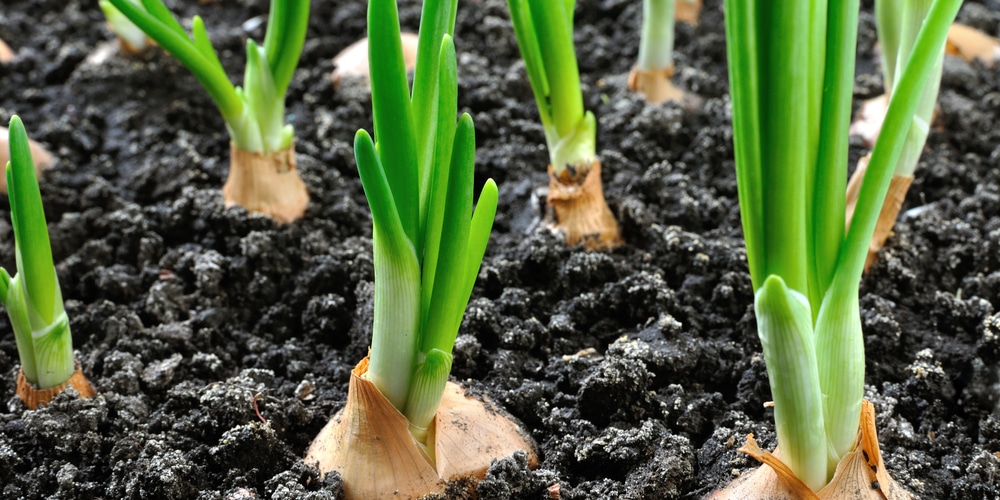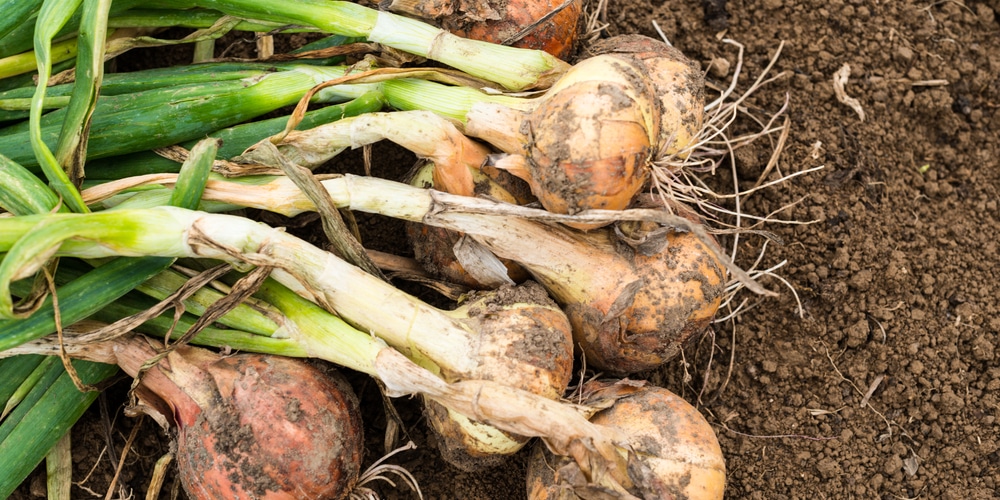Gardening zones are usually determined by the winter temperature. The zones’ divisions are based on a difference of 10°C in temperature, meaning zone 6 is ten °C colder than zone 7. That said, farming in hardship areas may not be interesting because not all plants can endure the harsh conditions.
If you are a veteran gardener or wish to start planting onions in zone 6 areas, you could be wondering when is the right time to plant onions. Well, before you put your onions in the soil, there are a few considerations you need to make. The most crucial consideration is timing.
Without proper timing, you may end up harvesting low quantities, or worse, fail to harvest anything. This article covers the best time to plant onions in zone 6 and other essential aspects as far as planting onions is concerned.
When is the best time to plant onions in zone 6?

When it comes to planting onions, it is safe to say that onions are generally hardy plants that can grow at any time of the year. However, if you wish to have an excellent onion harvest in zone 6, you must plant your onions in mid-August. In almost all years, the first frost comes in early or mid-October. If you plant onions in August, the first frost will find them in the soil and ready to handle the adverse temperatures that come with ice.
Some farmers prefer planting onions in early spring to harvest in the first summer weeks, while others may like planting onions in the late summer, so they harvest in spring. Onions are generally hardy plants and can grow well in any climate regardless of the planting period.
Why do you need to do proper onion timing?
To be safe with onions in your garden, always do proper timing so that they will get enough sunlight for bulbing. Onions usually require specific minimum hours of daylight over the entire growing season for bulbing to take place.
Onions are usually categorized as short days, intermediate days, and extended day onions depending on the number of hours they require to be in the sunlight for building to occur. For the best harvest, be sure to pick the right onions for your state’s climate. This is because timing onions affect the time and quantity of yield.
Typically, onions start bulbing when they sense the sunlight signal for a specific number of hours. The hours vary depending on the onion variety but usually range from 8-10 hours in a day. In most cases, this requirement pushes many farmers to plant starts or sets early enough before the actual planting season. This ensures that the sets get enough sunlight exposure to produce many bulbs.
As long you do proper timing, your onions will yield many bulbs. Identifying the size of a bulb onion is usually very easy. You need to simply count the number of leaves on top of the plant because it is directly related to the size of the bulb in the sense that the leaves equal the number of bulb layers. Enough sunlight will ensure you get many onion leaves that will later translate to a larger and adequately packed onion bulb.
In a nutshell, most onion varieties produce well in temperatures ranging from 12 – 23 degrees Celsius. However, some onion species can still thrive at temperatures as low as -6 degrees Celsius. After bulbing, onions require relatively high temperatures and low humidity for curing to occur.
Do onions tolerate cold temperatures?
Onions are complex plants and can tolerate cold temperatures. However, severe temperatures in the northern and western parts may affect onions significantly to the extent that they fail to produce any bulbs.
When frost finds fresh onions in the garden, it harms the fragile bulbs and stalks.
That said, there are some techniques a farmer can employ to protect onions against frost and extreme coldness. The most common way is to use a mulch to protect the onions from getting into direct contact with frost. You can also use burlap or unique plant covers on your onions to prevent them from freezing. Always remove the plant covers when rainfall is approaching.
When to plant onions in zone 6: Conclusion
Onions are a great vegetable to plant in zone 6 can be a good venture, especially if you do proper timing. If you live in zone 6 and are planning to plant onions, hopefully, you will find this article helpful.
Related:

